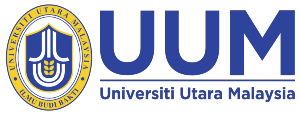

Doctor of Education – Online
Mohe/mqa: (n-dl/0111/8/0007)(11/30)(mqa/pa16827), why this course.
The Doctor of Education (EdD) is designed for experienced educators, educational leaders and professionals.
This EdD programme differs from a purely academic PhD in Education by focusing on the inter-relationships between pedagogical theory and practice.
Combining both research and application, the EdD is applicable to a broad range of industries inside and outside of the world of education.
It provides an ideal qualification for candidates seeking to move into senior leadership, higher level teaching or policy roles within the education realm.
> Why Study UNITAR’s Doctor in Education (EdD)
Doctorate programmes, in general, are designed for candidates who want their theses or dissertations to be recognised and awarded by their respective universities with a PhD based on extensive and original research in their chosen field.
Our online Doctor in Business Administration programme is mainly on supervised research work that will equip graduates with in-depth knowledge of business and management in addition to implementation in the chosen area of expertise. Professional doctorates in business administration will provide an opportunity for students to contribute to knowledge and practice. Being a DBA graduate will enhance your credibility and demonstrate competence in the business field to advance your professional goals. A doctorate in business administration can open many doors, including lecturing, consulting, organisational leadership and research.
> Industrial and Societal Insights
Other than achieving your personal academic goals, obtaining your online DBA will empower you to contribute significantly to businesses across different industries and societies. The rapid and drastic changes in the business landscape have been amplified by the pandemic that hit the world at large. Your industry-based research in your field of expertise can potentially rebuild the economy and nation towards a more sustainable future.
> Accredited by MQA and Awarded a QS 5-Star Rating for Online Learning
UNITAR’s Doctor in Business Administration online course is accredited by the Malaysian Qualifications Agency (MQA) and approved by the Ministry of Education Malaysia.
As the first university in Southeast Asia to be awarded a QS 5-star rating for online learning, students of UNITAR will experience quality online education through our online DBA course. What this means is that students will have access to professional online student services and technology, supportive student-faculty engagement as well as opportunities for coursemate and alumni interactions, among others. There is flexibility in consultation hours with supervisors based on the prior appointments made.
> Course Structure and Grading
Students can opt for either full-time or part-time study when enrolling for the online DBA programme. The duration of the study is a minimum of 3 years and a maximum of 6 years (full-time), while it’s a minimum of 4 years and a maximum of 8 years (part-time).
The online postgraduate course is 100% coursework with only 5 courses to complete. In other words, there is no comprehensive examination and no final examination. The dissertation is assessed and graded with “satisfactory” or “pass”, “unsatisfactory” or “fail”, which will not be included in the CGPA calculation.
Lessons will also include doctoral seminars to provide industrial perspectives to candidates.
> EPF Withdrawal Available
We accept applicants to fund their online DBA studies via their EPF Account II Withdrawal.
Accelerate your future today with our range of conventional and online education study programmes below.
" * " indicates required fields
Course information
Entry requirements.
- A Master’s Degree (Level 7, Malaysian Qualifications Framework, (MQF) in the field or related fields accepted by the Higher Education Provider (HEP) Senate; OR
Other qualifications equivalent to a Master’s Degree (Level 7, MQA) recognized by the Government of Malaysia Candidates without a related qualification in the field/s or working experience in the relevant fields must undergo appropriate prerequisite courses determined by the HEP.
KEPERLUAN BAHASA INGGERIS
International Students
- Minimum score of 6.0 for IELTS OR
- Minimum score of 60 for TOEFL iBT OR its equivalent
Course Structure
Programme modules (full-time).
Core Modules
Advanced Research Methodology
Advanced Qualitative Research
Advanced Quantitative Research
Philosophy of Education
Advanced Academic Writing
Doctoral Seminar in Education
- Dissertation (Part 1) Independent Study Project and Proposal Defense
- Dissertation (Part 2) Final Defense and Submission of Dissertation
Elective Modules
Any two courses out of the three courses for each specialization:
- Educational Leadership and Management (ELM)
- Advanced Leadership and Management in Education
Strategic Planning and Leading Change in Education
Human Resource Management in Education
Curriculum Design and Innovation
Advances in Sociolinguistics
Advanced Studies in Second Language Acquisition for TESL
Principles and Practices in Early Childhood
Comprehensive Assessment in Early Childhood Education
Materials selection, adaptation, and design in Early Childhood Education
Career Prospects
School Leadership (Principals/Deputy Principals/Head of De[artments/etc)
Higher Education Leadership (Deans/Deputy Deans/Heads of Departments/etc)
Curriculum specialist
Learning designer
Policy Officers
Academicians (Lecturers/Associate Professor/Professor/etc)
Programme Learning Outcome
The Programme Learning Outcomes (PLO) of this programme is to prepare graduates who are able to:
The Doctor of Education (EdD) degree at UNITAR covers a wide range of areas of knowledge related to research and policy, organizational leadership and management, as well curriculum design, instructional strategies, assessment methods, educational technology, and theories of teaching and learning in the Teaching of English as a Second Language (TESL) and Early Childhood Education (ECE).
These areas of knowledge provide a comprehensive foundation for EdD students in education to become leaders, advocates, researchers, policy makers and change agents who are prepared to address the complex challenges and opportunities in the field. Through coursework, in-depth research, and rich case-based learning experiences, students develop the expertise and skills needed to promote high-quality education
Related Programmes

Master of Business Administration – Online

Doctor of Philosophy in Business Administration
WhatsApp us
Download Brochure
- Message From the Dean
- Mission,Vision & History
- Top Managemant
- Academic Staff
- Administrative Staff
- OBE - Outcome Based Education
- Bachelor of Arts with Education
- Bachelor of Science with Education
- Bachelor of Education (TESOL)
- Bachelor of Education (Special Education)
- Doctor of Philosophy - Ph.D
- Master of Arts in Education - M.A (Ed.)
- Master of Arts in Education - M.A (Ed.) Mixed Mode
- Doctor of Education - Ed.D
- Master in Counselling
- Master of Education - M.Ed. (Offshore)
- Research & Grant
- Research & Collaboration
- Collaboration & Networking
- Form Download
- Student Handbook
- Terms of Entry
- IPS Official Telegram Channel
- Green Office @ PPIP
- Awareness Campaigns
- SES Mangrove
- Hari Inovasi PPIP
- Facility Booking
- Collaboration on the City Human Potential Ranking
School of Educational Studies | Main Campus
Doctor of Education - EdD
- Doctor of Education (Science Education)
- Doctor of Education (Educational Technology & Multimedia)
- Doctor of Education (Curriculum Instruction)
- Doctor of Education (TESOL)
There are two major components in the programme:
- Coursework (60 units)
- Research/Dissertation (30 units)
The Coursework Component Advanced Research Methodology and Statistics (12 units) This component aims to enable the candidate to master the process of educational research. The courses deal with various research methods that enable the student to learn research skills, data processing techniques, statistical analysis and the use of computers in data analysis.
Candidates have to major one area of specialisationfrom the following:
- Science Education
- Educational Technology
- Curriculum and Instruction
- TESOL (Teaching English to Speakers of Other Languages)
Candidates are required to select 5 courses from the Master's or Doctoral courses offered by the School of Educational Studies or other Schools that can support or enhance the scope and depth of the candidate's major.
Candidates are required to select a research topic and carry out an intensive research study under the supervision of a lecturer/supervisor and members of the Dissertation Committee.
I. Master degree (Coursework or Mixed Mode)
A) CGPA of at least 3.00 / 4.00; or
B) CGPA of 2.50 - 2.99 with; or
- Research experience – 2 years; or
- Professional experience in related field – 2 years; or
- Two (2) academic publications in the field; or
- Grade B+ for major/elective courses; or
- Grade B+ for Coursework Mode or P for Mixed Mode dissertation/project;
II. Training and or professional experience in the field of education.
III. Fulfil other requirements determined by the individual areas of specialisation.
- Full-time: Min 6 semesters / Max 10 semesters
- Part-time: Min 8 semesters / Max 14 semesters
Digital University For All
- Shared Values
- Pro-Chancellor
- Board of Governors
- Executive Management Committee
- METEOR Board of Directors
Administration
- President/VC's Office
- VP/DVC's Office
- - Academic & Research
- - Learner Experience & Technology
- - Business Development
- - Registrar's Office
Achievements
- Awards & Recognition
- Undergraduate
- Postgraduate
- Faculty of Business & Management
- Faculty of Technology & Applied Sciences
- Faculty of Education
- Faculty of Social Sciences & Humanities
- Research Hub
- Digital Library
- Recognition & Accreditation
- Request Info
- Visit Learning Centre
59 Programmes Available
Future Learners
- Learning Centres
Current Learners
- Online Score Entry System
- Support & Guidance
- Financial Aid
- PsyQiQ Plus
- Alumni Portal
- Convocation
- Verify Graduates
Malaysian Learners
- How To Apply
- Requirements
- Programmes Offered
International Learners
- Financial Assistance
- Online Application
Top Searches:
- TSDAS Digital Library
- Scholarships
- Application

International Learner Fees
Notes: 1 – Fees applicable to International applicants 2 – The fee above excludes registration fee, processing fee and resource fee. Fee imposed first semester only-non refundable . (Diploma RM2,700; Bachelor RM3,200, Master RM3,700, PhD/Doctorate RM4,200). 3 – Financial method: Telegraphic Transfer , PayPal (Invoice will be prepared in MYR and will be added 6% to cover PayPal transaction fees.) 4 – The fees are for subject fees only and are not applicable for research, registration, repeating of subjects and other fees. 5 – 60% payment of the semester fees must be made before the semester starts, 40% payment before the examination week.
* The University reserves the right to revise the fees without prior notice. **LATEST UPDATE: 30 August 2022
Entry Requirements
Program educational objectives (peo).
This programme aims to produce graduates that are:
PEO 1: To produce Education Practitioners who have state of the art knowledge with practical skills capable of using advanced numerical techniques and digital technologies in the educational settings.
P EO 2: To produce Education Practitioners who lead with autonomy, communicate and interact with internal and external stakeholders in constructing creative concepts/practices through research.
P EO 3: To produce Education Practitioners who advocate professional and ethical practices in all education settings and defend the integrity of the profession at all times.
PEO 4: To produce Education Practitioners with positive attitude, entrepreneurial mind set and sustainable practices in progressing their career and the profession.
Program Learning Objectives (PLO)
Upon completion of the programme, graduates will be able to:
- What is EdD? Is it equivalent to PhD? EdD stands for Doctor of Education, a professional doctoral qualification in education, an accredited programme under the National Accreditation Board of Malaysia issued by Malaysia Qualification Agency (MQA/FA0666). Unlike a PhD which basically focuses on research that produces excellent researchers, EdD studies that focus on specially chosen subjects stimulate, inspire and transforms students’ professional thinking and practice, whilst developing a profound understanding of how relevant supervised academic research can resolve real-life professional issues. Yes, EdD is equivalent to PhD. PhD is a research degree. EdD is a professional and research degree. It is designed to meet the needs of those who are interested in pursuing their doctoral studies in education after achieving a master degree, and possesses experience for at least two years in the field of education.
- Does the OUM EdD follow the US or UK version? Essentially there is not much difference between these two US and UK version, in terms of their structure. EdD was first awarded in 1920 by Harvard University. University of Bristol in the UK, was the first university in Europe that started the programme in 1993, essentially following Harvard’s structure. From there, EdD spread out all over the world. Almost all universities, including OUM, that offer EdD programmes have a common structure that is made up of courses to be taken by candidates before starting their research projects. Well, yes, there are certain variation in terms of the nature and subject areas, and the number of subjects in all EdD programmes, depending on the chosen concentrations, such as curriculum, management, ICT and policy.
- Master’s degree in Education, or
- Master’s degree other than Education and possess Bachelor’s degree in Education; or
- Master’s degree other than Education and possess Diploma/Certificate in Teaching; or
- Master’s degree other than Education and possess at least 2-year teaching experience; or
- Master’s degree other than Education and pass three (3) bridging courses offered by the university; or
- Any equivalent qualifications recognised by the Malaysian Government
- How long is the EdD study duration? EdD students spend the first two years of the program completing valuable coursework and the final two years working on their dissertation. However, candidates may take up to a maximum of eight years to complete their studies.
- When is EdD intake? All semesters, (January or May or September semesters).
- How much is EdD fees? Please refer to the OUM portal.
- What is the medium of instruction of the programme? English. However, students may write their assignments and Dissertation in English or Bahasa Melayu.
- 36 credit hours of core concentration (12 subjects)
- 4 credit hours of Doctoral Seminar: Presentation of a Concept Paper
- 40 credit hours of Proposal and Dissertation.
- How many EdD credit hours for graduation? 80 credit hours
- What about EdD course assessment? There is no final examination for all the taught courses. Students need to do coursework (100% weightage) and pass with a minimum of Grade B for each subject, including a concept paper, after which students will start writing research proposals that they need to defend successfully before they are allowed to proceed further.
- How are the courses in EdD conducted? It is a blended learning (face to face tutorials, online or e-tutorial learning support and self-managed learning). However, presently, all course tutorials at OUM are conducted via google-meet.
- Lecturers in Higher Education
- Managerial positions in Higher Education
- Leadership positions in Higher Education
- Principals of Private or International Schools
- Education Management Advisers
- Educational Consultants
- Management positions in education organisations
Assoc. Prof. Dr Gunasegaran A/L Karuppannan Programme Director DOCTOR OF EDUCATION (EdD) Faculty of Education 603 7801 1301. We look forward to see you in OUM-EdD programme.
How to Apply
Request information, financing your education, do you have more questions.
Here are some common types of career fields and examples of career opportunities for graduates with a Doctor of Education (Ed.D) degree:

Look for other programmes that you might be interested:
- Bachelor of Teaching (Primary Education) with Honours
- Bachelor of Early Childhood Education with Honours
- Bachelor of Education (TESL) with Honours
- Diploma in Early Childhood Education
- Doctor of Philosophy (Education)
- Doctor of Philosophy (Early Childhood Education)
- Master of Education
- Master of Early Childhood Education
- Master of Instructional Design and Technology
- Sarjana Pendidikan Bahasa Melayu
- Postgraduate Diploma in Teaching
- OUM Graduates
- Staff Portal
- Centre for Teaching & Learning Management
- Vendor Registration
- Procurement Notices
Alumni • Vacancy

- Application Guidelines
- Postgraduate
- Doctorate Programmes
Doctor of Education (Ed.D.)
GENERAL ENTRY REQUIREMENT
Applicants for the Doctor of Education (Ed.D.) programme must possess
- a master’s degree or its equivalent from any accredited Higher Learning institutions recognised by the University Senate with CGPA 3.00 and above; or
- other qualifications as approved by the University Senate; and
- Professional requirement (Diploma in Education or Teaching certificate)
PROGRAMME STRUCTURE
Doctor of Education (Ed.D.) is offered by coursework.
A total of 89 credits for each area of specialisation: Coursework (53 credits) and Dissertation (36 credits)
SPECIFIC ADMISSION REQUIREMENT
- Master’s Degree or its equivalent from any accredited Higher Learning Institutions approved by the UUM Senate with CGPA 3.00 and above; OR
- Other qualifications as approved by the University Senate
- Professional requirement (Diploma in Education or Teaching certificate).
International Applicant
Applicants must fulfil one of these requirements:
- Test of English as a Foreign Language (TOEFL) with minimum marks of 500, OR
- International English Language Testing Services (IELTS) with minimum band of 5.5 in all the components, OR
- MUET with at least Band 3 and above, OR
- Other requirements approved by the University Senate.
ADDITIONAL ADMISSION REQUIREMENT
Applicants who do not fulfil the professional requirement must enrol in the pre-requisite courses below before registering for the doctoral programme and achieve a minimum of B grade in each course:
- SGDA2103 Philosophy, History and Policy in Education
- SGDA2113 Psychology of Learning
- SGDA2123 Sociology of Education
Core Courses (17 credit hours)
SGDA7013 ICT in Education SLCE6014 Academic Writing SGDP7014 Advanced Research Methodology in Education SGDP7043 Advanced Qualitative Research in Education SGDP7053 Advanced Statistics in Education
Discipline Core Courses (36 credit hours)
1. Curriculum & Instruction
SGDC7013 Curriculum Perspectives SGDC7024 Curriculum Change and Evaluation SGDC7033 Curriculum Leadership and Supervision SGDC7043 International Scenes of School Based Curriculum SGDC7054 T eaching and Learning Perspectives SGDC7064 Teaching for Creativity and Problem Solving SGDC7074 Researching Classroom Teaching SGDC7093 Assessment in Teaching and Learning SGDC7104 Curriculum Design and Innovation SGDC8014 Doctoral Seminar in Curriculum and Instruction Research Issues
2. Islamic Education
SGDI7014 Islamic Philosophy and Epistemology SGDI7024 Islamic Thought and Educational Movements SGDI7034 Akhlaq and Spirituality in Education SGDI7044 Contemporary Curriculum and Instructional Leader in Islamic Education SGDI7104 Pedagogy in Islamic Education SGDI7114 Assessment in Islamic Education SGDI7124 Contemporary Psychology of Da’wah in Islamic Education SGDI7134 Management in Islamic Education SGDI8014 Doctoral Seminar in Islamic Education
3. Instructional Technology Leadership
SGDT7013 Instructional Technology Planning, Management and Evaluation SGDT7023 Planning Online Instruction SGDT7033 Performance Improvement and Evaluation SGDT7043 Learning Systems, Technology and Culture SGDT7053 Technological Leadership for 21st Century SGDT7063 Innovation, Change and Organizational Structure SGDT7073 Integrating Digital Technologies into the Curriculum SGDT7083 21st Century Tools for Learning and Training SGDT7014 Designing Digital Age Learning Environment SGDT7024 Advanced Research in Instructional Technology SGDT7034 Seminar in Instructional Technology Leadership
Dissertation (36 credit hours)
SGDZ79936 Dissertation
LEVEL OF STUDY OF DOCTORATE PROGRAM
- LEVEL I: Enrol and pass all the courses in the structure of study with CGPA ≥ 3.00. Pass Comprehensive Examination.
- LEVEL II: Present research proposal, carry out research, write dissertation and attend oral examination/viva via dissertation.
- Candidates who do not achieve CGPA ≥ 3.00 will not be allowed to sit for Comprehensive Examination. In this case, candidates MUST improve on their grades prior to the examination.
COMPREHENSIVE EXAMINATION
- General area AND
- Exam is based on Open Book Test / Take Home Exam.
- Candidates can sit for the exam after passing all the courses in the structure of study with CGPA ≥ 3.00.
- Candidates can sit for comprehensive examination a few times until candidates pass the examination in the duration of study for three years (full time) and 4 years (part time)
- Candidates must pass the comprehensive examination before proceeding with LEVEL II of the doctorate program.
- Comprehensive examination will be offered twice a year in May and December.
DISSERTATION
- At this stage, candidates would have taken all the courses and passed the comprehensive examination.
- Candidates must conduct a research under the supervision of a certified supervisor along with the Dissertation Panel.
- Candidates must prepare and present a research proposal.
- The proposal must be defended by the candidate and approved by the panel before the research is carried out.
DISSERTATION FORMAT
- The number of words must not exceed 40,000 (or between 150- 200 pages, with 250 words per page) and is written abiding by the format stated by Awang Had Salleh Graduate School (AHSGS).
- Evaluation of the dissertation will be carried through an oral examination (Viva). Candidates must defend the research and the idea presented in his/her research. The Dissertation Panel will award a pass or a fail grade only.
DISSERTATION PANEL AND VIVA DISSERTATION
Dissertation will be examined by three (3) panel examiners and a maximum of four (4) Dissertation Panel and Viva Dissertation. The members in the panel are selected to evaluate the dissertation by Ed.D candidates holistically.
The minimum three panel members are i) supervisor, ii) a representative from the School, and iii) an examiner from another area of specialization in the Ed.D. program
The maximum four panel members are i) supervisor, ii) co-supervisor, iii) a representative from the School, and iv) an examiner from another area of specialization in the Ed.D. programme.
RESEARCH FIELD
- Curriculum and Instruction
- Instructional Technology Leadership
- Islamic Education
+604-928 5299
+604-928 5297, this email address is being protected from spambots. you need javascript enabled to view it., http://ahsgs.uum.edu.my.
- Vision & Mission
- Logo & Emblem
- The University's Mace
- Annual Report
- University Educational Goal
- Pro-Chancellor
- Board of Directors
- University Management
- University Senate
- Professors Council
- Chancellery
- VC & DVC's Office
- Registrar's Office
- Organisation Chart
- College of Business
- College of Arts and Sciences
- College of Law, Government and International Studies
- Othman Yeop Abdullah Graduate School of Business
- Awang Had Salleh Graduate School of Arts and Sciences
- Ghazali Shafie Graduate School of Law, Government and International Studies
- Postgraduate Studies Unit, UUM COB
- Academic Affairs
- Teaching & Learning
- Quality Assurance
- Co-Curriculum
- Industrial Training
- UUM Kuala Lumpur Campus
- Undergraduate
- Distance Learning
- International Affairs
- Financial Aid
- Online Payment
- Student Affairs
- One Stop Centre
- Health Services
- IT Services
- Development & Maintenance
- Safety & Security
- Islamic Affairs
- Sports & Recreation
- Student Residential Hall
- Clubs & Associations
- Dining & Cafe
- Attractions
- Research and Innovation Management Centre
- Innovation & Commercialization Centre
- Centre of Excellence (CoE)
- UUM Experts
- UUM Journals
- UUM Conferences

Doctor of Education (EdD)
R3/142/8/0020(07/29)(A7045)

Career Prospects
Types of occupations / positions suitable for graduates of this programme: Executive, Head Coach, Preschool Assistant Teacher, Preschool Teacher, Day Care Centre Teacher, Child Care Centre Teacher, Teacher, Coach, Education Coordinator, Education Specialist, Preschool Specialist, Quality Control Officer, Academic Advisor, Registrar, Educator, Preschool Director, Principal, Assistant Dean, Assistant Preschool Teacher, Assistant Coach, Assistant Registrar, Assistant Principal, School Administrator, Education Officer, Administrator, Resource Development Coordinator, Special Education Coordinator, School Program Coordinator, Clinical Researcher, Researcher, Industry Consultant, Education Consultant, Tutor, and Entrepreneur.
Contact Person
Dr.Abu Bakar Mohd Sheikh Coordinator of Doctoral Degree Programmes, (EdD & PhD in Education & PhD in Social Sciences), Faculty of Education and Social Sciences, University Selangor, Malaysia. Phone: 017-2023798 Website: https://sites.google.com/a/unisel.edu.my/dr-abu-sheikh-unisel/home Revised Date: 26th. January 2022
Duration of Course / Study
Full Time : 3 – 7 Years Part Time : 4 – 8 Years
Tuition Fees
Local Student — RM23, 400 International Student — RM43, 200
Learning Outcomes At the end of this Doctor of Education programme, scholars can:
- Synthesizing current knowledge and knowledge arising from research related to teaching and learning in meeting the challenges of the dynamic curriculum on the various core and elective disciplines of education.
- Creatively design and develop studies or research to address educational issues that demonstrate knowledge mastery, as well as incorporating art state analysis of the various core disciplines of education and electiveness from the education discipline.
- Demonstrate mastery of practical skills, technical skills, and scientific skills in various educational and elective disciplines core educational disciplines.
- Demonstrate advanced leadership skills and abilities to bring effective cooperation with various partners.
- Deliver convincing and ongoing information, insights, ideas, problems, and problemsolving to friends and the public in the field of expertise.
- Use existing instruments or develop appropriate instruments and methodologies to support and enhance research activities.
- Conduct critical assessments of numerical and graphic data.
- Demonstrate leadership, professionalism, management skills, and fully responsible for self-work and for the work of others in the research team/organization/project/ work.
- Integrate knowledge for lifelong learning in terms of development of new ideas, solutions, and systems, as well as initiate and lead entrepreneurial projects.
- Identify emerging ethical and professional issues, their complexity, and implications for research progress in various sub-policies of their education and social impact.
Entry Requirement
(a) Master’s Degree, as accepted by the Senate of the University; OR (b) Other qualifications equivalent to a Master’s Degree, as accepted by the Senate of the University.
English Language Requirement
International students are required to achieve a minimum score of IELTS 5.0 OR it’s equivalent. my/drabubakarchool-com/home
Programme Content
EPG7163 Seminar in Education (3 credit) EPG7013 Academic Writing (3 credit) EPG7093 Advanced Qualitative Research Method (3 credit) EPG7273 Advanced Quantitative Research Method (3 credit)
The programme includes four components: (1) Compulsory Courses (2) Core Courses EPG7023 Assessment and Evaluation in Education (3 credit) EPG7033 Education in Multicultural Society (3 credit) EPG7083 Sociology of Education (3 credit) EPG7103 Staff Development and Professionalism in Education (3 credit) EPG7113 Entrepreneurship in Education (3 credit) EPG7173 Psychology of Education (3 credit) EPG7183 Special Education (3 credit)
(3) Elective Courses
3.1 Leadership in School: OR EPG7043 Leadership in School (3 credit) EPG7123 Responsibility of School Leaders (3 credit) EPG7193 Principle-Centred Leadership (3 credit) EPG7233 Organizational Behaviour in School (3 credit) EPG7283 Curriculum and Implementation in School (3 credit)
3.2. Management of Higher Education Institutions: OR EPG7053 Managing Higher Education Institutions (3 credit) EPG7133 Financial Management in Higher Education Institutions (3 credit) EPG7203 Organisational Behaviour in Higher Education Institutions (3 credit) EPG7253 Communication in Higher Education Institutions (3 credit) EPG7293 Contemporary Issues in Higher Education Institutions (3 credit)
3.3 Teaching English as a Second Language (TESL): OR EPG7063 Second Language Assessment (3 credit) EPG7143 Teaching Literacies: Research, Theory, and Practice (3 credit) EPG7213 Second Language Literacy Development (3 credit) EPG7243 Language and Communication in the New Learning Environment (3 credit) EPG7303 Literature, Culture, and Language Education (3 credit)
3.4 School Discipline Management: EPG7073 Smart School Discipline (3 credit) EPG7153 Counselling and Behaviour Modification in School (3 credit) EPG7223 Juvenile and Legal Systems in School (3 credit) EPG7263 Student’s Discipline Assessment in School (3 credit) EPG7313 Behaviour Psychology in School (3 credit)
(4) Thesis. EPG7332 Thesis (32 credit)
Lecturer / Supervisor
The faculty and supervisor of the thesis for the programme consist of qualified lecturers in related fields at the Masters and Doctoral degrees. A total of 14 of them graduated with a doctorate. Two lecturers hold professors, seven Associate Professors, while the other is Senior Lecturers in the field either locally or overseas.
For further information, please contact:
Deputy Dean (Research & Postgraduate) Name : Tuan Syed Lamsah bin Syed Chear E-mail : [email protected] contact : 018 – 4684247 Programme Coordinator Name: Dr. Abu Bakar Mohd Sheikh Email: [email protected] Contact: 017-2023798
FULL-TIME STUDY (3 YEARS) Programme study plan (for long semester intake)

PART-TIME STUDY (4 YEARS) Programme study plan (for long semester intake)
Apply online now.
All donations to the Student Emergency Fund will directly support our students as they adapt to changing circumstances.
RESEARCH PROGRESS EVALUATION (RPE)
Congratulations viva voce.
Everything that I learned at Kempbelle University really helped put me above the competition in the field of business management.
Alyssa Watson BA Business Management
Top Searches:

IMAGES
COMMENTS
The Doctor of Education (EdD) is designed for experienced educators, educational leaders and professionals. This EdD programme differs from a purely academic PhD in Education by focusing on the inter-relationships between pedagogical theory and practice.
The Doctor of Education (EdD) is designed equip scholar-practitioners to connect educational theories and research evidence with educational practice. Students will analyse, critique and develop tools of inquiry in meeting the challenges of 21st century education.
Candidates are required to select 5 courses from the Master's or Doctoral courses offered by the School of Educational Studies or other Schools that can support or enhance the scope and depth of the candidate's major.
Doctor of Education program prepares education scholars and leaders for the 21st century as it provides rigorous teaching in various areas in education, and research training that equips graduates to have broad impact in the worlds of policy and practice.
Doctor of Education (Ed.D.) is offered by coursework. A total of 89 credits for each area of specialisation: Coursework (53 credits) and Dissertation (36 credits) SPECIFIC ADMISSION REQUIREMENT
The Doctor of Education / Doktor Pendidikan programme is a doctoral programme in the Education Sciences programme. It has compulsory courses such as Seminar in Education and Academic Writing. It also has core courses on educational disciplines such Assessment and Evaluation in Education and Education in Multicultural Society.